“The main thing is to keep the main thing the main thing.”
– Stephen Covey, First Things First
One of the most valuable planning tools I have found is Stephen Covey’s time management matrix. This is a great tool for helping you evaluate your investment of time from a bigger picture view.
Generally speaking, we are an urgency-addicted society. We tend to focus on that which is urgent – whether the activity is important or not. I can easily get off track if I allow my incoming e-mail, phone calls, or text messages to take precedence over other activities that are more important to me. It’s so easy to make urgency the dominant factor and completely lose track of what’s most important.
If you struggle with a strong urgency mind-set, I guarantee that you will feel more satisfied and fulfilled when you take steps to focus your time and energy on what’s most important and avoid those activities that are not important to you.
To help you make better decisions about how you spend your time, Stephen Covey created a matrix, which breaks time into four quadrants. (Scroll to the bottom of the page for a larger view of this.)
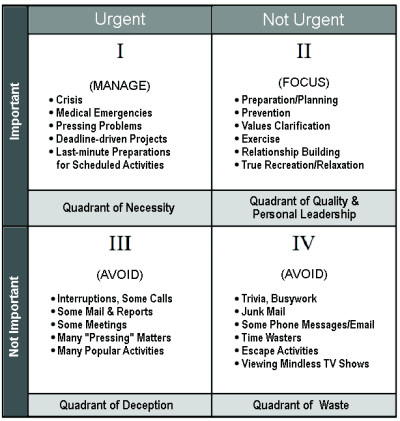
I’ll review each of these quadrants to help you understand the power of applying this model to your life.
Quadrant 1 (Q1) is known as the Quadrant of Necessity
This quadrant represents activities that are necessary for you to focus on because they are urgent (time sensitive) and important to you.
We tend to focus on Q1 activities because they are urgent, and the need to do these activities makes itself known to us. These activities are hard to ignore because our life experiences have taught us that when we ignore Q1 activities, we get into trouble.
If you have a lot of Q1 activities in your life and you find yourself frequently saying, “I have to . . .” or “I gotta . . .” – victim language-it may be time for you to reconsider what you are doing. An estimated 80 percent of the population puts themselves into a self-imposed prison cell on a regular basis. We forfeit our freedom of choice through our own thought processes.
When I hear someone using victim language, I often ask them, “Do you have to or do you choose to?” There are very few things in life that you have to do. Yet some forfeit their ability to choose and view their options in life as limited. This generally leads to a feeling of hopelessness. If you do not feel at choice about some of your urgent and important activities, it may be time to change your focus. There are times that we truly are victims, but often this has been self-imposed by limiting our own choices.
Some urgencies-like medical emergencies-are not something we consciously choose. It’s something we simply must handle. My father did not choose to have a heart attack. However, at some level, he did make a choice-by living a sedentary life and eating a high-fat, high-cholesterol diet– despite the warning bells sounded by his doctor. He’d had high blood pressure for quite some time and was not doing his part to manage his heart disease. Had he focused more time in Q2 (not urgent but important activities)–doing regular exercise and eating a healthier diet–he may have avoided escalating his health management to Q1 (urgent and important) at the time of his heart attack.
For thirteen years, I chose to stay in a stressful career that I did not find fulfilling—one with a lot of Q1 activities attached to it. The more time I invested in that career path, the less at choice I felt. At one point, I took an exam to receive a special certification in my field. When I passed the exam and was certified, I felt like there was no turning back! I told myself, “I can’t leave this field now . . . look how much I’ve invested in it!” And besides, I had no idea what else I could possibly do. Fear held me back until one day, the pain of not making a change outweighed the fear of the unknown.
In my years of coaching, I’ve found that when my clients focus on their values-what’s most important to them at the core-they are more at choice and less at effect. They recognize that they have the freedom to choose based on their own values versus being influenced by limiting beliefs, circumstances, or the opinions of others.
Quadrant 2 (Q2) is known as the Quadrant of Quality and Personal Leadership
This quadrant represents activities that are important, but because they are not urgent, they are easy to put on the back burner for “when I have more time.” In order to focus on these activities, one must be proactive.
The more time we spend in Q2, the more quality we add to our lives. If we neglect Q2 activities long enough, sometimes they become Q1 activities (urgent and important). For example, if your spouse came home and told you that he/ she was leaving if you didn’t devote more time to him/her, relationship building (generally considered Q2—not urgent but important) would probably become a Q1 (urgent and important) activity.
Unfortunately, “more time” never comes. We all get 168 hours a week. The best way to “find” more time is to reduce the amount of time you spend in Q3 and invest that time in Q2 activities instead.
Quadrant 3 (Q3) is known as the Quadrant of Deception
This quadrant represents activities that are not important but urgent (time-sensitive). Q3 is known as the quadrant of deception because we get deceived into believing that these activities are important because they are urgent even though we’ve identified these activities as not important.
The word “urgent” means that the activity is time sensitive or deadline driven. For example, an incoming phone call is considered urgent because the phone is ringing right now. It may or may not be important, but if you don’t answer the phone now, it will stop ringing. Sometimes incoming e-mail, text messages, and Facebook posts feel urgent although they are often not important.
You’ll need to say no to or renegotiate activities that are urgent but not important to you. The only exception to this would be activities that are important to someone who is important to you, so you choose to make that activity a priority even though the activity itself is not important to you. There is a huge difference between choosing to make something important and feeling like you have to do it, which I call victim thinking.
Here’s an example of when I chose to move a Q3 activity to Q1. When my daughter was little, she wanted Goodnight Moon read to her every single night at bedtime. Reading that same book every evening was not personally important to me, but because that relationship was important to me and that activity was important to her, I chose to make it important to read that book to her every night. It was urgent because bedtime was at a specific time. So reading Goodnight Moon moved from Q3 to Q1, and my attitude about reading it improved once I was clear about WHY I chose to read it to her each night before bed.
Quadrant 4 (Q4) is known as the Quadrant of Waste
This quadrant represents activities that are not important and are not urgent.
The most common Q4 activity I’ve encountered in my work with busy people is escape activities. When the stress level gets high enough, some people escape from reality by doing activities that do not address or resolve the problem. This is considered wasteful.
Note that the same activity can fall into Q2 or Q4. If you are enjoying true recreation or you are relaxing, resting, and rejuvenating yourself, the activity falls into Q2. If you are engaged in an escape activity–doing something to avoid addressing a problem, challenge, or something uncomfortable in your life-it is a Q4 activity. In other words, it’s the motivation behind doing the activity that determines whether or not it is a Q2 (rejuvenating) or Q4 (escape) activity. You are the only one who can determine this.
A friend of mine loves to watch Judge Judy every afternoon on television. He loves this so much that he plans his schedule around the time that this daily show airs. He is a top income producer in his business, and he does a great job of managing his priorities. In his case, watching this TV show is not a Q4 “escape” activity for him, but rather a Q2 “rejuvenating” activity. He does not watch much TV, but this particular show really brings him joy, and he carves out time for it every afternoon.
Many people are “urgency-addicted”–a self-destructive behavior that temporarily fills a void created by unmet needs. This type of addiction is as dangerous as other commonly recognized addictions and dependencies.
The goal is to manage activities in Q1, focus on activities in Q2, and avoid activities in Q3 and Q4–activities that you’ve deemed as not important. Because so many of us are urgency addicted, we tend to spend the bulk of our time in Q1 and Q3–doing activities that are urgent and important or urgent but not important.
It’s easy for you to get lured into activities that are time wasters that do not build your business. Get clear about what your daily, weekly, and monthly core activities are; and it will be easier for you to make decisions about what’s important and what is not important.
Now that you have a tool to help you identify activities that are not important to you, it’s time to make some conscious choices about how you spend your time in the future.
Check out my Managing Priorities webinar under Resources/Webinars to learn a powerful weekly planning process that will help you live your life more intentionally.
Here’s your homework for today!
1. Create your own time management matrix, using the blank one provided here.
2. Review your activities and list them under the appropriate quadrants.
3. Identify which activities in Q3 and Q4 you will say no to and which activities in Q2 you plan to add to your weekly schedule. Remember that every time you say yes to someone or something, you are saying no to someone or something else!
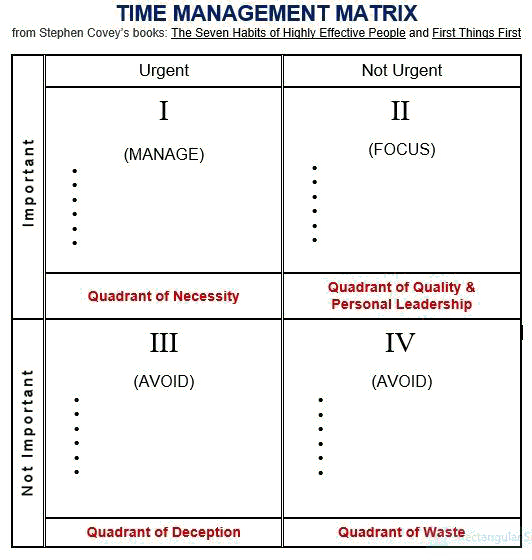
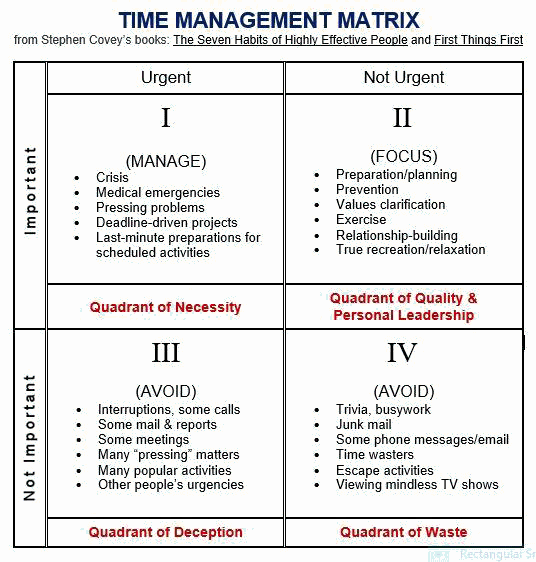
For additional help with this, I invite you to attend
my free Managing Priorities webinar.

Life Architect – Creating Blueprints for Purposeful & Productive Lives
Kathy@OrgCoach.net www.OrgCoach.net Follow me on Facebook

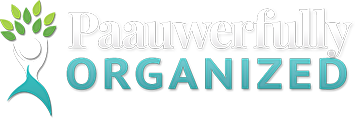


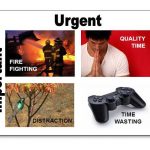

Thanks for posting this awesome article. I’m a long time reader but I’ve never been compelled to leave a comment.
I subscribed to your blog and shared this on my Facebook. Thanks again for a great article!
Very nice post. I just stumbled upon your weblog and wanted to mention that I have truly loved browsing your posts. I will be subscribing for your RSS feed and I hope you write again very soon!
This site was relevant! Finally I’ve found something which helped me. Thank you!